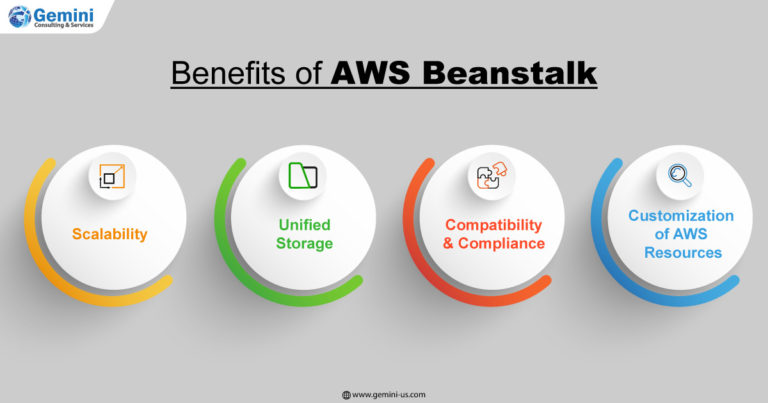The post-COVID-19 business landscape has brought on new challenges for enterprises and benefits. IT infrastructure has become more complex and cloud computing adoption has expanded. Cloud technology has emerged as a potent technology disruptor, compelling businesses to adapt to the innovative paradigm or run the risk of becoming obsolete.
Migrating to the cloud has helped enterprises streamline critical IT processes and simplify the management of key business applications. As a result, cloud adoption has quickly accelerated. Managed services on the cloud help businesses meet demand in real-time while offering quick and efficient solutions using their expertise to bridge all skill gaps.
An analysis by McKinsey says that effective use of the cloud can increase the efficiency of migrated application development and maintenance by 38%. It can also improve the cost of infrastructure efficiency by 29% and reduce the downtime of migrated applications by about 57%. These in turn bring down the costs associated with technical violations by 26%.
So, whether the business functions in a multi-tenant or hybrid cloud environment, a reputed cloud management services company like AWS with an extensive ecosystem can easily support and maintain a given IT environment. AWS has a track record of managing complex workloads for businesses across niche areas giving structure to mission-critical IT processes while enabling digital transformation and innovation.

What is AWS Elastic Beanstalk?
Web applications come with a lot of moving parts that need to be accurately provisioned and scaled while ensuring that the database is functioning flawlessly.
Elastic Beanstalk steps up as a fully managed service that handles all the underlying infrastructure once the code is uploaded, thereby, helping resources to focus more on coding over deployment.
An AWS-managed service for web applications, Elastic Beanstalk has a pre-configured EC2 server that can directly handle application codes and environment configurations, and automatically provision and deploy resources within the AWS environment to run the web applications. This is offered as Platform as a Service (PaaS) allowing users to directly use a pre-configured server to deploy their applications. While users can still deploy applications using Elastic Beanstalk, it requires them to choose an appropriate service from a variety of services offered by AWS, manually provision them, and combine them to complete web applications.
AWS Elastic Beanstalk enables users to focus on their core work as its underlying framework helps take care of the rest. However, this does not mean that developers are restricted from changing any configuration. Java, .NET, Tomcat PHP, Node.js, Docker, Python, Ruby, Glassfish, and Go applications are supported by AWS.
AWS Elastic Beanstalk: Features
- Elastic Beanstalk directly takes in the project code and hence shares the name as the project home directory.
- Different environments like DEV, UAT, and PROD may be created and configured to run applications across various stages.
- AWS runs routine health checks on all EC2 deployments (Elastic Beanstalk is a managed EC2 service) that can be monitored from the AWS console. For instance, developers can schedule to ping the web application to check if the response is status code 200 and the application is running as expected. Health check responses can be monitored and accordingly updated as and when required.
- With its auto-scaling capability, Elastic Beanstalk can make an application dynamically scalable.
- Initially, some web requests are routed to hit the Elastic Load Balancer (ELB), which balances the load across all the application instances.
- Elastic Beanstalk has the capability for automatic provisioning. Due to this, it enables users to automatically choose the right services and configure their security groups so that they can work together. Using this feature, Elastic Beanstalk can handle any amount of internet traffic easily.
AWS Elastic Beanstalk is the best fully managed service that handles end-to-end deployment and management of web applications. Ease of use and support for several languages and frameworks is its huge advantage. Gemini Consulting & Services can help enterprises to leverage the capabilities of AWS Beanstalk to beat the competition. Contact us to understand the advantages of AWS and how it can be used to effectively handle the enterprise tech infrastructure.
Scalability: In the case of a sudden spike in traffic, Elastic Beanstalk can automatically scale the web application to meet demands. On the other hand, it will roll back automatically in case of a dip in traffic thus attracting payment only for the resources used. This helps bring down unnecessary costs.
Unified Storage: Since Elastic Beanstalk stores all applications in one place, it is easy to manage and monitor all applications. This keeps applications organized and makes it easy to track down issues and act on them quickly. It is also possible to set up different environments for each application so that new changes can be tested in a staging environment before they are sent into the production phase.
Compatibility & Compliance: AWS Elastic Beanstalk is compatible with Java, .NET, Tomcat PHP, Node.js, Docker, Python, Ruby, Glassfish, or Go, thereby rendering a lot of flexibility while building the application. Elastic Beanstalk meets several common compliance standards, including the Payment Card Industry Data Security Standard (PCI DSS), the Health Insurance Portability and Accountability Act (HIPAA), and the General Data Protection Regulation is a Regulation (GDPR) making it particularly easy for medical and financial applications to be hosted in the cloud.
Customization of AWS Resources: With Elastic Beanstalk it is possible to customize everything from the type EC2 instance used up to the Amazon S3 bucket that stores the application’s static files. Businesses can enjoy complete control over the AWS resources and hence can optimize applications to obtain the most of it.
Use Cases
- Web Application Hosting: Elastic Beanstalk simplifies the deployment and management of web applications. This allows enterprises to easily host and scale their applications in a managed environment. It supports multiple programming languages and platforms, making it suitable for hosting applications built with Node.js, Java, .NET, PHP, Python, Ruby, and Go.
- Microservices Architecture: Elastic Beanstalk is well-suited for deploying and managing microservices-based architectures. Enterprises can deploy individual microservices as separate applications within Elastic Beanstalk, allowing for independent scaling and management of each service. This flexibility helps in building scalable and modular applications.
- API Backend Services: Elastic Beanstalk is often used to deploy and manage backend services that power APIs. Enterprises can build and deploy RESTful APIs or GraphQL services using Elastic Beanstalk, leveraging its automatic scaling capabilities to handle varying levels of API traffic.



